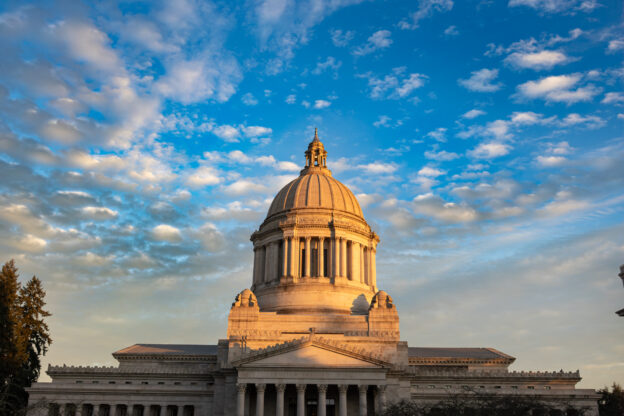The new two-year state capital budget passed unanimously by the Legislature today includes funding for key water-infrastructure projects throughout eastern Washington, including some benefiting the Columbia Basin, according to 9th District Sen. Mark Schoesler and 13th District Sen. Judy Warnick.
The capital budget provides $69 million for the Columbia River Water Supply Development Program, of which $44 million is for the Odessa Groundwater Replacement Program, also known as the “EL 22.1 Project.”
It aims to provide surface water to deep-well irrigators and farmers in the declining Odessa Aquifer Subarea north of Interstate 90 and east of Moses Lake. The capital-budget money will help pay for completing the Odessa aquifer recharge for Othello, which will help store more water in the aquifer.
“This capital budget is a big win for water-infrastructure needs in the Columbia Basin and other parts of eastern Washington,” said Schoesler, R-Ritzville and Republican leader on the Senate capital budget. “The EL 22.1 Project is extremely important for this region, especially agriculture. Three generations of farmers in the Columbia Basin are still waiting for irrigated water. Thanks to the funding in this capital budget, these farmers won’t have to wait much longer.
“Securing this funding has been a major priority for our region,” said Warnick, R-Moses Lake. “The Odessa aquifer has been in serious decline for years, and farmers have been anxiously waiting for relief. This project will bring critical water resources to help sustain agriculture and our local communities for generations to come.”
The Odessa water project also will receive $40 million in matching funds from area growers, said Schoesler and Warnick. The senators noted that the long-awaited project will bring water to 17,000 acres in the area and will take 36 irrigation wells offline.
“With this capital budget funding and the matching money from growers, this project is ready to start,” Warnick said.
Warnick had an essential role in “letting other legislators know how important the Odessa water project is and helping to ensure it received the needed funding,” added Schoesler.
Schoesler and Warnick pointed out that 42 groups, nearly all of them in the Columbia Basin, wrote letters in recent weeks expressing support for funding of the EL 22.1 Project. They included Grant County commissioners, Adams County commissioners, Washington Farm Bureau, Washington Association of Wheat Growers, Grant County Economic Development Council, Adams County Development Council, City of Moses Lake, Moses Lake Chamber of Commerce, City of Othello, Grant County Public Utility District, Port of Moses Lake, Port of Warden, Port of Othello, Town of Odessa, Town of Lind, City of Harrington, Big Bend Community College, Lincoln County Economic Development Council, Inland Northwest Partners, AgWest Farm Credit, Columbia Basin Railroad and EL-22.1 Landowner Association.
The new capital budget also provides $52 million for the Yakima River Basin Water Supply Program and $8.5 million for the Yakima-Tieton Canal to start fixing damage caused by a wildfire.
Construction and maintenance of state buildings, public-school matching grants, higher-education facilities, public lands, parks, water infrastructure and other assets all are funded by the capital budget.
“This final version of the capital budget helps pay for projects across the entire state. It lives within our means while doing a good job of addressing needs throughout Washington,” said Schoesler. “Many K-12 education projects are funded. It strongly funds fish hatcheries and also is a good budget for water projects, as well as housing and other needs. Our capital budget has something for every part of our state.”












